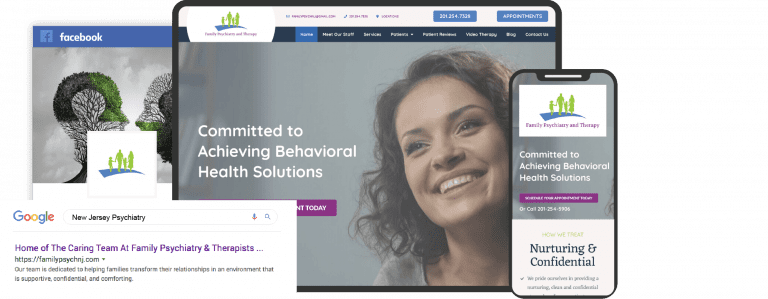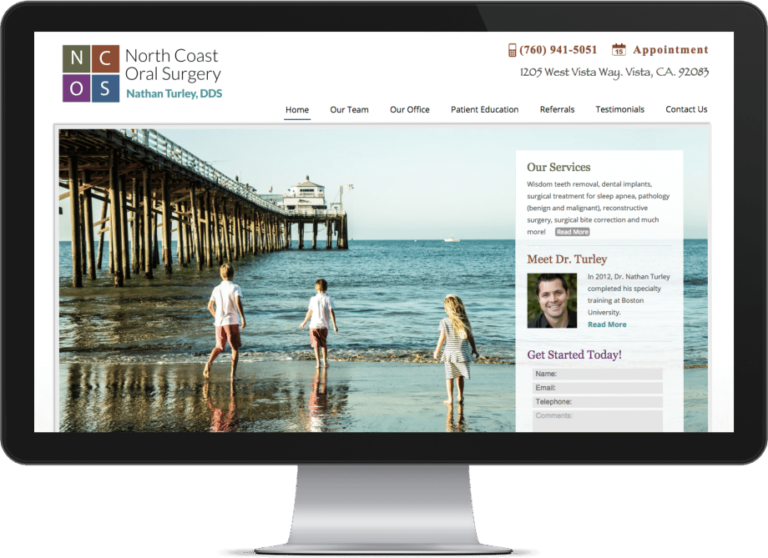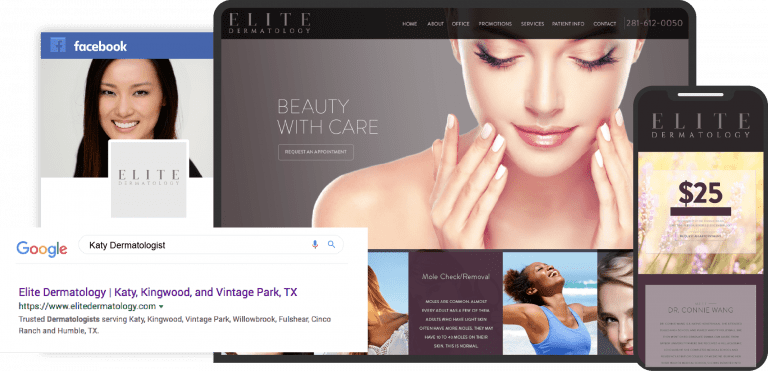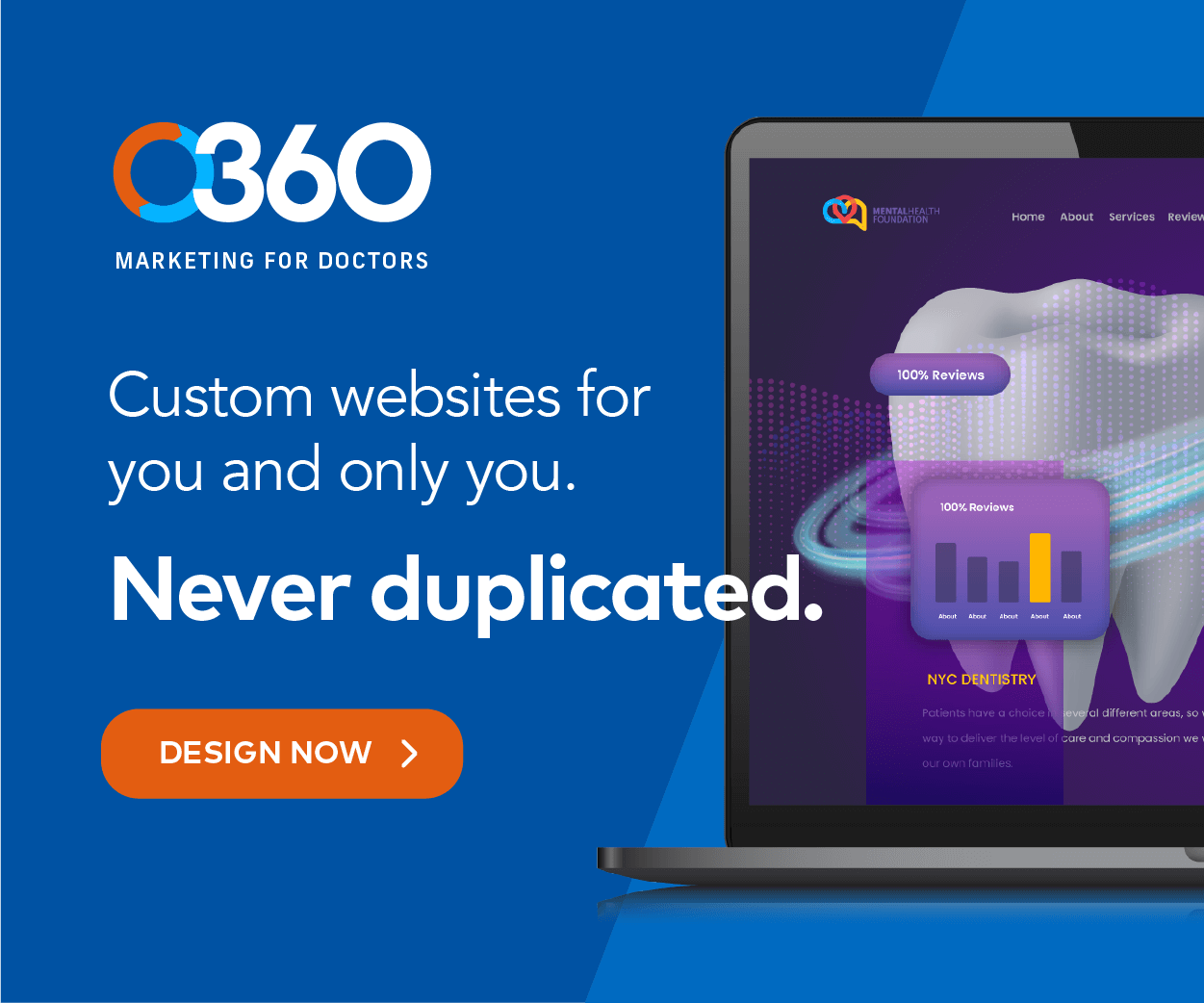Crafting Engaging Experiences for 2024
If we’re being honest, most medical websites kind of suck. They’re clunky, confusing mazes filled with doctor-y mumbo jumbo. But times are a-changin’ friends! In 2024, it’s all about the patient. Medical sites are getting a major humanizing makeover to create experiences that truly connect with people (not just bore them to tears).
As a website designer who has helped dozens of practices boost their web presence, let me walk you through some of the key trends lighting up the medical web scene and how you can implement them:
It’s All About Me
Patients want a site that feels like it was custom-made for them. Using AI and big data, medical sites are now hyper-personalizing content. When Patricia, a 40-year-old mom with chronic back pain, visits her doctor’s site, she’ll instantly see articles on managing lower back issues, yoga routines for pain relief, and parenting with disabilities.
Here are some ways to create that VIP experience:
- Install smart chatbots – Imagine patients ask a question and immediately get tailored answers from a friendly, helpful bot. Far less frustrating than searching a maze of pages.
- Curate content for different visitors – You can categorize patients based on age, gender, conditions and more, then display content you know will interest them.
- Let patients bookmark pages – This allows them to easily access their go-to articles on future visits.
- Implement predictive search – As patients type questions, the search bar displays suggested articles to save them time.
- Offer personalized health reminders – Patients provide info on medications, appointments, etc. and get custom reminders via email or text.
The key is anticipating patients’ needs and catering right to them. When your site offers that bespoke experience, they’ll keep coming back.
Pictures Speak a Thousand Words
Reading long blocks of text is a drag, but you know what isn’t? Photos, videos, animations, and snazzy graphics. They’re the peanut butter to the website’s dry jelly. In 2023, sites will use visual storytelling to showcase their services and help patients digest complex health topics. We’re talking detailed product tours, inspiring patient success stories, and clever infographics breaking down conditions.
Violà – now we’re speaking their language! Ways to pump up the visuals:
- Spotlight patient stories – Video interviews discussing their treatment journey make topics relatable.
- Show off your space – Let patients tour the office, chat with staff, and see procedures through photos and video.
- Explain procedures visually – Animations and illustrated guides help patients visualize what will happen.
- Use infographics – These simplify complex ideas into colorful graphics that are easy to understand.
- Embed videos – Host video FAQs where doctors answer common patient questions.
- Hire a graphic designer – They can spice up any stale pages with custom illustrations.
Patients will appreciate you taking the time to create a visually engaging experience. A picture really is worth a thousand words!
We’re All in This Together
Healthcare shouldn’t feel isolating. The savviest sites are now integrating social media and community forums to foster connections. Patients can swap treatment tips, join support groups, and see real reviews from fellow humans – not bots. It reminds us we’re not alone on this crazy health journey.
Here are some ways to get social:
- Build online patient communities – Let patients join discussion groups based on their conditions.
- Display social media feeds – Showing recent tweets, posts and reviews builds credibility.
- Share user-generated content – Images or stories that patients share on social media bring authenticity.
- Host live Q&As – Patients can ask doctors questions during live video sessions.
- Spotlight staff – Let patients get to know nurses and staff through profiles.
- Offer bonding experiences – Coordinate walks, runs, events for patients to connect.
- Provide wellness tips – Share articles on stress relief, nutrition and lifestyle for whole health.
Online communities and social engagement create a reassuring sense of togetherness. Patients want to know there are others out there like them.
There are other rising trends that put people first too, like enhanced accessibility for disabilities and top-notch security to protect patient data.
More Vital Tips for Humanizing Your Medical Website
Crafting a human-centric medical website is about way more than fancy AI tech. It’s also about the warmth, personality, and connections you cultivate. Here are some key ways to put the care back in healthcare:
Get Conversational
Stuffy, formal language screams, “robot-generated content!” Have an actual human write the copy in a friendly, down-to-earth voice. Patients want plain talk, not pompous jargon.
Share Your Story
What led you to open this practice? Why are you passionate about this work? Patients love learning the real stories behind their care providers. Feature photos and profiles of doctors, nurses and staff.
Adopt a Warm Color Scheme
Stay far away from cold grays and blues. Opt for warmer tones like peach, gold, or forest green to help patients feel welcomed and comforted.
Make Mental Health a Priority
Offer resources for reducing anxiety and depression alongside physical health content. This holistic view is so important.
Don’t Forget Accessibility
Ensure your site is navigable for all patients by meeting ADA compliance standards. Offer tools like voice navigation, captions, and legible fonts.
100% Custom Medical Website Designs
Protect Patient Privacy
Security features like HTTPS, HIPAA compliance, and permission-based sharing preserve trust. Handle data with the utmost care.
Actually, Listen to Patients
Actively collect feedback through surveys, reviews, and outreach. Let real patients guide your site design and content strategy.
See what I mean? You’ve got to reach patients’ hearts, not just their minds. By balancing the human touch with smart technology, you’ll have an unstoppable site.
The key is crafting a site that feels, well, human. Drop the sterile stock photos and walls of text. Make it personal, visual, and social. Patients will WANT to visit your site if it actually speaks to them. Trust me, I’ve seen the power of human-centric web design firsthand. It takes a good site from “meh” to “wow!”
So give your medical website a humanity boost in 2023. You’ll be amazed how much patients appreciate the effort. This is the future of healthcare web, baby!














